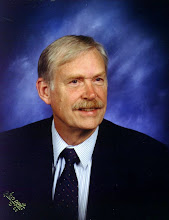That he was a screwball can hardly be denied. Or that he was the "biggest mouth in the South," either.
Roger Atkinson Pryor (1828-1919) was a true Virginian Southerner when he practiced law and when he was an editor of the Richmond Enquirer in 1854. He wrote two famous editorials, the best known of which was "A House Divided," which President Lincoln borrowed for his own use (and for which Lincoln gave Pryor credit).
As a Congressional Representative, Roger wanted War, and he wanted the South to have its own country, where it would not be voted down at every turn. Yet when war finally came and he was offered the first shot on Ft. Sumpter, he declined the honor.
Roger was made a Brigadier General in the Confederacy and given a small command. But he was not one of the better generals, except in his own mind. He demanded a larger force, but was denied. The next day Roger resigned his commission and re-entered the Confederate Army as a private soldier. No one knew what to do with him, so they asked Roger to become a spy.
By trickery, the Union Army caught Roger. News reached President Lincoln, who talked the capture over with his Cabinet. The Cabinet, almost to a man, recommended that Roger be hanged, and the sooner, the better. But President Lincoln did not want to do that.
Lincoln had Roger brought to Washington so he could talk to him. They talked off and on for a week. Lincoln got Roger to agree to go to war no more and then released him back to Richmond. True to his word, Roger did not go to war. But he and his family were destitute. He worked his way to New York City where he studied State law (he was already a member of the bar in Virginia). Through connections he got several cases and became famous. He sent for his family who were living in poverty after the Civil War and set them up in better conditions in the North.
Roger Pryor became very well known as a successful attorney in New York State. He practiced law, was a delegate to the Democratic National Convention and judge of the court of common pleas. In 1894 he was appointed to the New York State Supreme Court. (His wife was also active. With several other women, she founded the DAR.)
Roger served on the Bench until 1899 when he was retired because of his age. He continued to serve in other legal capacities until his mouth was silenced by death in 1919.
Civil War History Virginia New York DAR
Tuesday, October 25, 2005
Subscribe to:
Post Comments (Atom)


No comments:
Post a Comment